
Workshop – Kühe verstehen
Beobachtungsübungen & Begleitung
von Herde und Mensch mit Mabelle Tacke
Im Rahmen des Projekts Hornkuh bieten wir individuelle Workshops für Berater:innen sowie Gruppen von Landwirt:innen an.
Photo: Dr. Carsten Scheper | ÖTZ
In organic cattle breeding, we focus on diversity - in line with the numerous cattle breeds and different farming systems in organic agriculture. Our breeding goal: robust, healthy cows that can cope optimally with regional feed and impress with their longevity and dual purpose (milk & meat).
To this end, we create practical solutions such as bull recommendations and the further development of overall ecological breeding values (RZÖko). At the same time, we are shaping a sustainable mission statement and breeding objectives in the advisory board, focusing on breeding topics such as basic feed utilization, health, robustness and dual purpose.
And that is precisely why we are not a traditional breeding company, but a project company. Our focus is on the development of practical solutions and research topics as well as cooperation with existing breeding organizations and structures. We see ourselves as an interface for farmers, breeding organizations and research institutions.
Because we are convinced that only cooperation will get us further. Together, we create structures for sustainable and holistic organic cattle farming.
Photo: Dr. Carsten Scheper | ÖTZ
Photo: Dr. Carsten Scheper | ÖTZ
Photo: Dr. Carsten Scheper | ÖTZ
Foto: ÖTZ
Foto: Jana Dehnen

Beobachtungsübungen & Begleitung
von Herde und Mensch mit Mabelle Tacke
Im Rahmen des Projekts Hornkuh bieten wir individuelle Workshops für Berater:innen sowie Gruppen von Landwirt:innen an.

Veranstaltung am 21.10.2025 | Gelbvieh als regionale Milchviehrasse auf dem Schwalbenhof, Wülfershausen

FiBL Exkursion zu Bio-Rinderzucht und BIO-KB Stiere Projekt vom 12. – 14. August 2025 in der Schweiz.
Anmeldung ab sofort möglich.
Gefördert durch die Software AG Stiftung
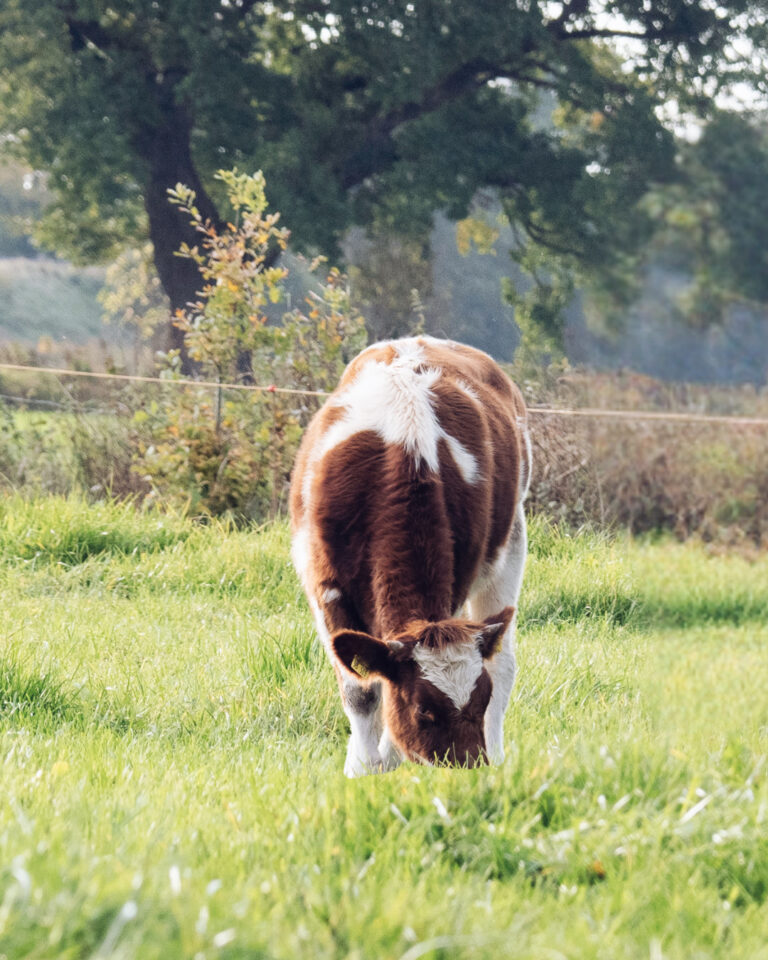
Ein Projekt zur Stärkung der ökologischen Verwertung von Milchviehkälbern durch neue Wertschöpfungsketten, bessere Vernetzung und konkrete Unterstützungsstrukturen. Das im Januar 2025 gestartet Projekt ist auf drei Jahre angelegt und wird vom BMEL im Rahmen der Biowertschöpfungsketten-Richtlinie des Bundesprogramms Ökologischer Landbau (BÖL) gefördert.
Foto: Eva Wolf | Demeter
Photo: Dr. Carsten Scheper | ÖTZ
Photo: Dr. Carsten Scheper | ÖTZ
Photo: Dr. Carsten Scheper | ÖTZ
ÖTZ accepts the challenge of tackling the diverse practical and technical issues of cattle breeding. Our goal: to create sustainable structures for organic farmers.
The focus here is on practice-oriented services such as bull recommendations and the further development of overall ecological breeding values (RZÖkoRZÖko stands for Organic Relative Breeding Value in the Holstein-Schwarzbunt and Holstein-Rotbunt breeds. The RZÖko is an overall breeding value that weights the individual traits it contains (e.g. longevity or body condition) and trait complexes (e.g. the complex of health traits in the RZGesund) in the sense of an ecological breeding goal. It thus serves both breeding organizations and practical breeders as a direct selection tool for the systematic realization of an ecological breeding goal. It is comparable to the ÖZW in the Fleckvieh and Braunvieh breeds. ).
We are developing a mission statement that does justice to the diversity of organic cattle breeding - supported by an advisory board of practitioners, consultants and scientists.
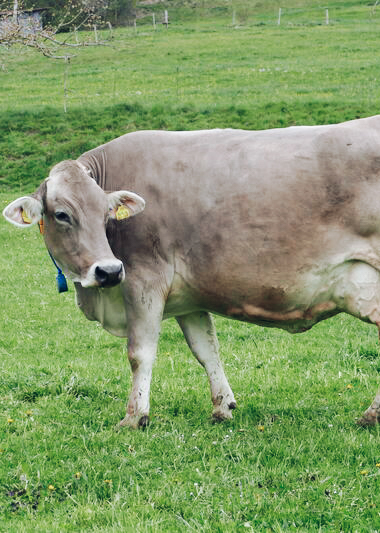
Genetics is important, but not everything. The healthy development of the calves is crucial for the long-term success of breeding. To ensure this, careful rearing is essential - from birth monitoring and colostrum supply to daily observation. This is the only way to lay the foundations for healthy and productive animals.
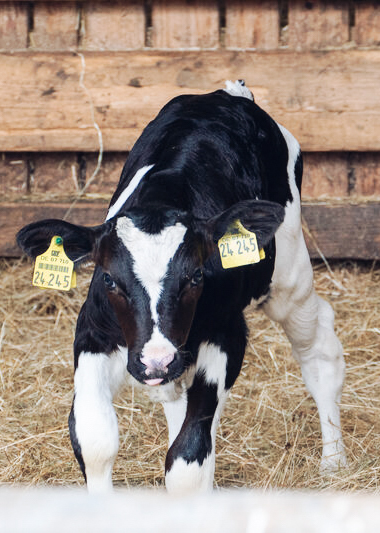
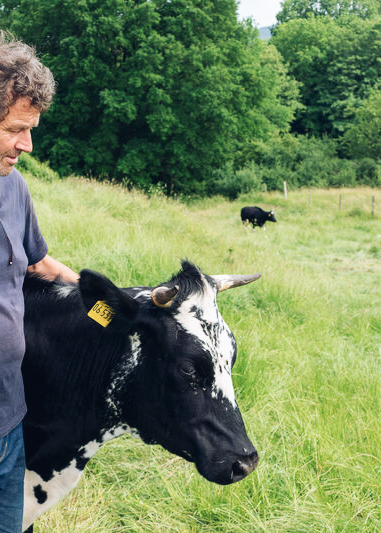
Animals that are perfectly suited to their location feel at home. They can make optimum use of the feed and are optimally adapted to the local conditions. By relying on health data and animal observations, we ensure that husbandry, feeding and use are in harmony with the welfare of the animals. And when the animal feels good, the person feels good too and working with the animals is a pleasure. Seeking support to check animal welfare on your own farm demonstrates a sense of responsibility and commitment to yourself, your farm, your animals and the environment.
Biodiversity in grassland also means diversity in the diet of cattle. Ruminants are true wonders of nature - they transform plants that humans cannot eat into valuable foods such as milk and meat. They also make an important contribution to climate protection by promoting CO₂ sequestration in the soil and actively helping to keep grassland healthy. Grazing promotes plant diversity, which in turn strengthens biodiversity. Organically managed grassland is therefore not only a source of food for the animals, but also an essential component of a healthy, climate-friendly agricultural system.
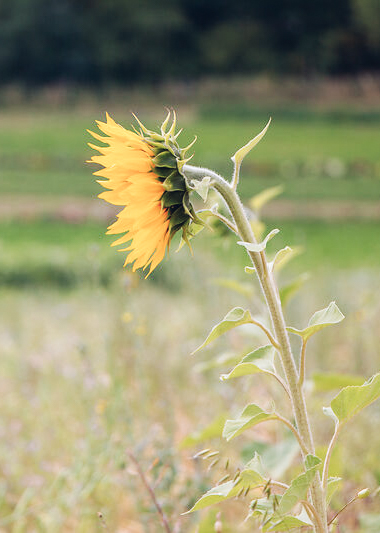

versandkostenfrei
Bruteier bestellen bis zum 4. Advent
Mit dem Code
XMAS25
You are currently viewing a placeholder content from Vimeo. To access the actual content, click the button below. Please note that doing so will share data with third-party providers.
More InformationYou are currently viewing a placeholder content from YouTube. To access the actual content, click the button below. Please note that doing so will share data with third-party providers.
More InformationYou need to load content from reCAPTCHA to submit the form. Please note that doing so will share data with third-party providers.
More InformationYou are currently viewing a placeholder content from Google Maps. To access the actual content, click the button below. Please note that doing so will share data with third-party providers.
More Information